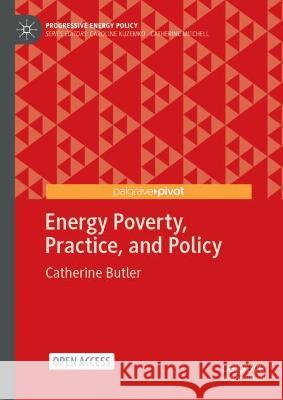Energy Poverty, Practice, and Policy » książka
topmenu
Energy Poverty, Practice, and Policy
ISBN-13: 9783030994310 / Angielski / Twarda / 2022 / 140 str.
Kategorie:
Kategorie BISAC:
Wydawca:
Springer Nature Switzerland AG
Seria wydawnicza:
Język:
Angielski
ISBN-13:
9783030994310
Rok wydania:
2022
Ilość stron:
140
Wymiary:
21.0 x 14.8
Oprawa:
Twarda
Dodatkowe informacje:
Wydanie ilustrowane











